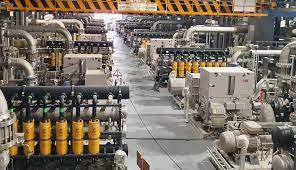
Breaking News
 IT'S OVER: Banks Are Dumping Shorts & Buying Physical (Front-Running China's Supply)
IT'S OVER: Banks Are Dumping Shorts & Buying Physical (Front-Running China's Supply)
 TESLA'S "SILVER HEIST": Elon Musk Just Outbid Samsung for 85M Oz (The $120 Silver Batt
TESLA'S "SILVER HEIST": Elon Musk Just Outbid Samsung for 85M Oz (The $120 Silver Batt
 Chatham House PANIC: Trump destroyed the West
Chatham House PANIC: Trump destroyed the West
 NASA announces strongest evidence yet for ancient life on Mars
NASA announces strongest evidence yet for ancient life on Mars
Top Tech News
 Superheat Unveils the H1: A Revolutionary Bitcoin-Mining Water Heater at CES 2026
Superheat Unveils the H1: A Revolutionary Bitcoin-Mining Water Heater at CES 2026
 World's most powerful hypergravity machine is 1,900X stronger than Earth
World's most powerful hypergravity machine is 1,900X stronger than Earth
 New battery idea gets lots of power out of unusual sulfur chemistry
New battery idea gets lots of power out of unusual sulfur chemistry
 Anti-Aging Drug Regrows Knee Cartilage in Major Breakthrough That Could End Knee Replacements
Anti-Aging Drug Regrows Knee Cartilage in Major Breakthrough That Could End Knee Replacements
 Scientists say recent advances in Quantum Entanglement...
Scientists say recent advances in Quantum Entanglement...
 Solid-State Batteries Are In 'Trailblazer' Mode. What's Holding Them Up?
Solid-State Batteries Are In 'Trailblazer' Mode. What's Holding Them Up?
 US Farmers Began Using Chemical Fertilizer After WW2. Comfrey Is a Natural Super Fertilizer
US Farmers Began Using Chemical Fertilizer After WW2. Comfrey Is a Natural Super Fertilizer
 Kawasaki's four-legged robot-horse vehicle is going into production
Kawasaki's four-legged robot-horse vehicle is going into production
 The First Production All-Solid-State Battery Is Here, And It Promises 5-Minute Charging
The First Production All-Solid-State Battery Is Here, And It Promises 5-Minute Charging
Report: LG Energy Solution Developing LFP Batteries

LG Chem's LG Energy Solution is expected to expand its EV battery offer with the LFP (lithium iron phosphate) lithium-ion chemistry (the oldest one), which is gaining popularity again.
So far, LG Energy Solution was focused on the NCM (nickel, cobalt, manganese) cathode chemistry and new NCMA (nickel, cobalt, manganese and aluminum) to achieve the best energy density and reduce the cobalt content to keep costs under control.
According to The Elec, the company has realized that the LFP chemistry also has business potential despite its lower energy density, because it's cobalt- and nickel-free, less expensive and considered safe. Recently, Tesla introduced the LFP battery option in the U.S.
We can only guess that developments were triggered by the customer inquiries as well as observations on how well the CATL and BYD are progressing - the energy density of the cells improved to a decent level, affordability is very important in the mass market, and the cell-to-pack design makes LFP a very competitive option.

 Storage doesn't get much cheaper than this
Storage doesn't get much cheaper than this

